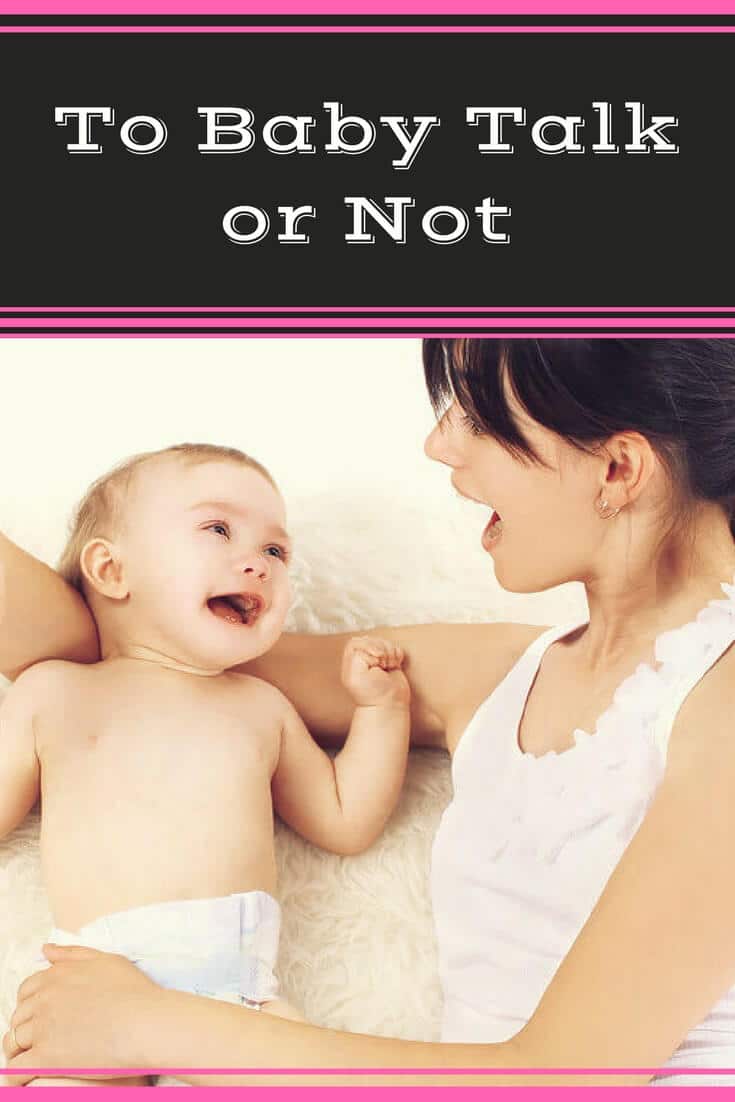
Some of us hate baby talk, believing “goo-goo, ga-ga” really translates to “goo-goo, gag me.” Others of us think it’s cute, except when adults do it, that is. Then we want to reach in and pull out their larynx. With our bare hands. Without anesthesia.
Whether you love it or hate it, baby talk isn’t void of controversy. Thus, as a parent, you have to make the choice: should you converse with your child as if you’re Tweety Bird or should you converse with them as if you’re human?
What’s in a Word
To speak or not to speak to your child in made up speech and nonsense diction involves opposing theories of thought: some love words like “yum-yum,” some think they’re really dumb-dumb. Overall, however, most experts agree that speaking to your child correctly helps them understand how to speak correctly too. Doing the opposite is a disservice to language skills.
Speaking Parentese
To clarify, speaking correctly doesn’t involve formal speech: you don’t need to perform a Shakespearean soliloquy in the Queen’s English – Out, damned spot! Out I say! – every time you wash your child’s soiled clothing. Rather, it involves using the right words in an affectionate tone. Some parents use a high-pitched voice and stretched out vowels; others practically perform a song and dance number.
Parentese is helpful to babies; it encourages the development of their language patterns. When accompanied by exaggerated facial expressions, as is almost always the case, it’s even more effective. It’s also universal: people all around the globe speak to their children in this manner. And, of course, some of us speak to our pets in this manner too.
The Benefits of Parentese
Parentese benefits babies in a few ways. First of all, research shows that infants prefer parentese to regular adult conversations (speaking in a regular tone about the stock market or global warming, for instance). Babies are more likely to turn their heads and respond to high-pitched sounds than they are to normal ones. This is true even if someone is speaking to them in a foreign language: French or Spanish or sullen teenager.
Parentese also helps babies learn. The exaggeration of the vowels, the marked consonants, and the simple sentences are advantageous to a child’s vocabulary. A baby’s brain is like a sponge, absorbing any information that comes its way. Speaking to an infant correctly – from the start – assures their brain absorbs the right words, instead of the icky ones.
This isn’t to say that speaking to your child in baby talk every now and then will backfire in the long run: they probably won’t go to college carrying their blankies and wondering what’s for din-din. But, why take that risk.
Besides, speaking to your child properly from the day they are born instills assets conducive to education: a praise for prose and a love for language. Before you know it, they’ll be correcting people’s grammar as you look on, never prouder.
Related Posts:
Four Major Parenting Styles: What You Need to Know
These 8 Traits Are Essential to Raising Successful Children
10 Secret Parenting Tips You Won’t Find Anywhere Else
